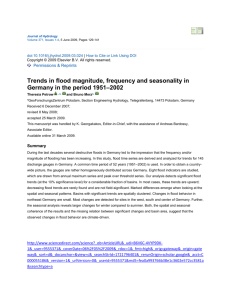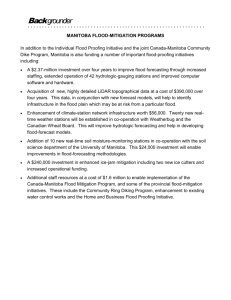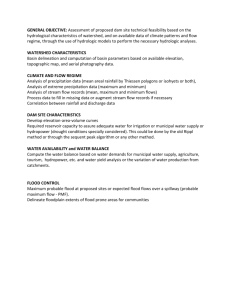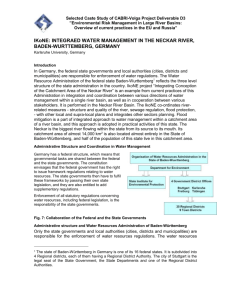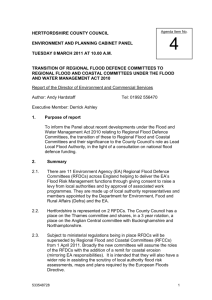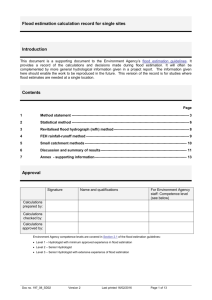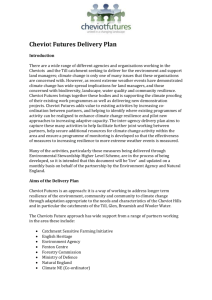job_description_ - Cumbria Wildlife Trust
advertisement
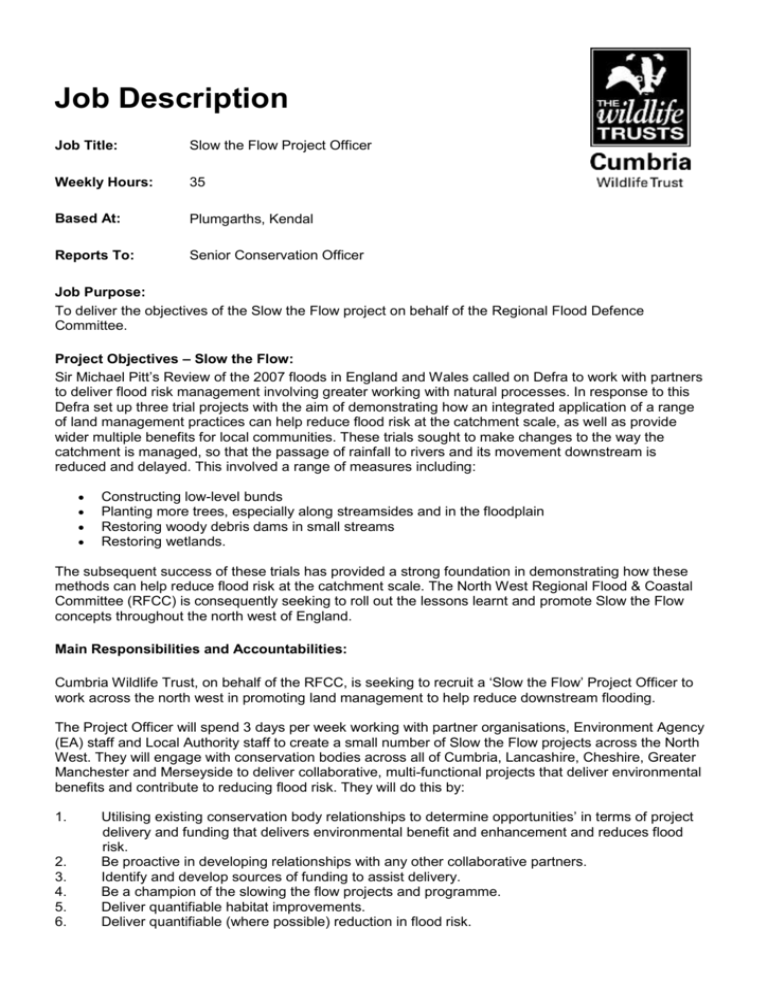
Job Description Job Title: Slow the Flow Project Officer Weekly Hours: 35 Based At: Plumgarths, Kendal Reports To: Senior Conservation Officer Job Purpose: To deliver the objectives of the Slow the Flow project on behalf of the Regional Flood Defence Committee. Project Objectives – Slow the Flow: Sir Michael Pitt’s Review of the 2007 floods in England and Wales called on Defra to work with partners to deliver flood risk management involving greater working with natural processes. In response to this Defra set up three trial projects with the aim of demonstrating how an integrated application of a range of land management practices can help reduce flood risk at the catchment scale, as well as provide wider multiple benefits for local communities. These trials sought to make changes to the way the catchment is managed, so that the passage of rainfall to rivers and its movement downstream is reduced and delayed. This involved a range of measures including: Constructing low-level bunds Planting more trees, especially along streamsides and in the floodplain Restoring woody debris dams in small streams Restoring wetlands. The subsequent success of these trials has provided a strong foundation in demonstrating how these methods can help reduce flood risk at the catchment scale. The North West Regional Flood & Coastal Committee (RFCC) is consequently seeking to roll out the lessons learnt and promote Slow the Flow concepts throughout the north west of England. Main Responsibilities and Accountabilities: Cumbria Wildlife Trust, on behalf of the RFCC, is seeking to recruit a ‘Slow the Flow’ Project Officer to work across the north west in promoting land management to help reduce downstream flooding. The Project Officer will spend 3 days per week working with partner organisations, Environment Agency (EA) staff and Local Authority staff to create a small number of Slow the Flow projects across the North West. They will engage with conservation bodies across all of Cumbria, Lancashire, Cheshire, Greater Manchester and Merseyside to deliver collaborative, multi-functional projects that deliver environmental benefits and contribute to reducing flood risk. They will do this by: 1. 2. 3. 4. 5. 6. Utilising existing conservation body relationships to determine opportunities’ in terms of project delivery and funding that delivers environmental benefit and enhancement and reduces flood risk. Be proactive in developing relationships with any other collaborative partners. Identify and develop sources of funding to assist delivery. Be a champion of the slowing the flow projects and programme. Deliver quantifiable habitat improvements. Deliver quantifiable (where possible) reduction in flood risk. 7. 8. 9. 10. Secure external funds. Make projects as a whole greater than the sum of the individual parts. Report on slow the flow delivery to RFCC and more widely in EA. Recommend project delivery funds and make proposals to the project steering group. The programme of work will vary depending on the groups but will work towards achieving the following objectives: • • • Identifying projects; Securing funding; Enabling and ensuring delivery of projects. The EA will provide information detailing the habitat types it seeks to create, and will identify existing EA programmes of projects and funding streams. They will also provide flood risk evidence on communities at risk and identify areas and the types of measures it wishes to see implemented in working with natural process. Using a catchment based approach the Project Officer will then instigate discussions with a wide variety of stakeholders to design and deliver projects that deliver the objectives of flood risk reduction and environmental enhancement. The Project Officer will spend the remaining 2 days working with lead local authority staff and EA staff to add Slow the Flow concepts to appropriate projects in the pipeline and collect and collate information about slow the flow projects and disseminate this information widely, especially to the RFCC. In addition the Project Officer will be responsible for administering and reporting to a Project Board made up of partners that will:- steer the progress of the project; monitor progress and difficulties encountered with the project; manage any proposed changes to the manner in which the project is run; manage the time spent on the project; manage the financial spend/invoices during the previous period; seek to resolve differences and disputes arising between the partners. They will also be responsible for administering a Project Delivery Fund on behalf of the RFCC. Supporting the Trust Be proactive in increasing the Trust’s membership. Raise the profile of Cumbria Wildlife Trust. Seek to raise increased funds for the Trust. Develop and participate in educational aspects of the Trust’s work including events, guided walks and illustrated talks. Any additional duties as outlined in the Annual Work Plan and the Trust’s Universal Work Plan. Any other duties that may reasonably arise from time to time. All tasks and responsibilities to be carried out in accordance with the Trust's policies and procedures. Date: April 2015





